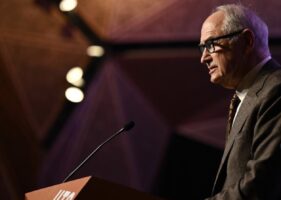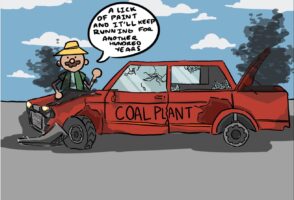In 1962, mixed-up confusion was killing Bob Dylan. His head was full of questions, and his temperature rising fast. Fifty years later, amid other rising temperatures, mixed-up confusion is confounding Australia’s efforts to respond to climate change.
One the one hand, the case for action seems straightforward. The debate over whether or not anthropogenic climate change is real is over, at least in the scientific community. Treasury modeling of
the potential impacts of climate change makes it clear that taking action on climate change is in Australia’s national interest. Much of corporate Australia agrees with this. And all major political parties advocate taking action on climate change.
So why, according to figures just released in the Climate Institute’s annual survey of Australian attitudes towards climate change, Climate of the Nation, do 65 per cent of Australians believe that there are too many conflicting opinions for the public to be sure about the claims made about climate change? Where does all this confusion come from?
It certainly does not come from a lack of information. If Bob Dylan had a cent for every media mention of climate change, he would probably never have got the tombstone blues, the freight train blues or even the subterranean homesick blues. Australians have had climate change shoved down their throat. Thousands of views have been canvassed, thousands of views have been offered.
Amongst this discordant cacophony, no one has been able to make their message resonate – not the government, not the opposition, not scientists, not climate science ‘deniers’, not NGOs, not community activists, not the private sector.
This has confused the population, and clouded their response to carbon pricing. Only 28 per cent of respondents in the Climate Institute poll (carried out by John Scales for JWS) said they supported the
government’s scheme. However, when basic aspects of the legislation are explained, the number jumps to almost 50 per cent. This is not to make a comment on the merits or otherwise of the government’s particular scheme – it rather illustrates the point that people don’t support things they don’t understand. And they don’t understand carbon pricing.
This is fair enough. As public policy goes, it is complex and nuanced. Even the policy wonks struggle to get their heads round it at times. Several popular criticisms of action on climate change stem directly from misunderstandings about how the government’s scheme might work (these criticisms may also be leveled at other schemes). Here are three key sources of confusion:
1. It won’t make a difference because Australia is only a small part of global emissions
2. It won’t make a difference because industry will move overseas and pollute from there
3. It won’t make a difference because we are going to compensate the polluters – so there is no reason for them to act.
There are very good answers to all three points. But this is entering a level of detail beyond the point at which the public would normally engage in public policy. Debunking incorrect information is necessary. But arguing the toss on the details of particular arguments is pointless – people end up confused and disengaged. Instead, advocates of climate change action would do well to focus on some key communication approaches:
– Appeal to the emotional: Use language and imagery that appeals to people’s emotional rather than intellectual side. This is something marketers have honed for decades.
– Use third-party advocates: There is no academy of science in the world that disputes the science. Other voices lend credibility to your arguments.
– Point to peers: Highlight what others, faced with the same problem, have done. The vast majority of countries have some form of measure in place to combat climate change.
Talk about the alternative: Instead of allowing the debate to focus on the intricacies of different schemes, focus on the costs of inaction.
Make it local: Talk about the impact of climate change on insurance bills and front lawns.
A recent poll by Fergus Hanson for the Lowy Institute showed that 38 per cent of Australians felt they had become ‘more concerned’ about climate change since the debate in Australia began. If this concern is to be harnessed into support for action, we need to do a much better job of telling the story, and a much better job of debunking the myths. “Sometimes it’s not enough to know what things mean,” Bob Dylan once remarked, “sometimes you have to know what things don’t mean”.
Andrew Ure is the Managing Director of OgilvyEarth, a sustainability communications company (part of Ogilvy Public Relations Worldwide). http://au.linkedin.com/in/andrewure







